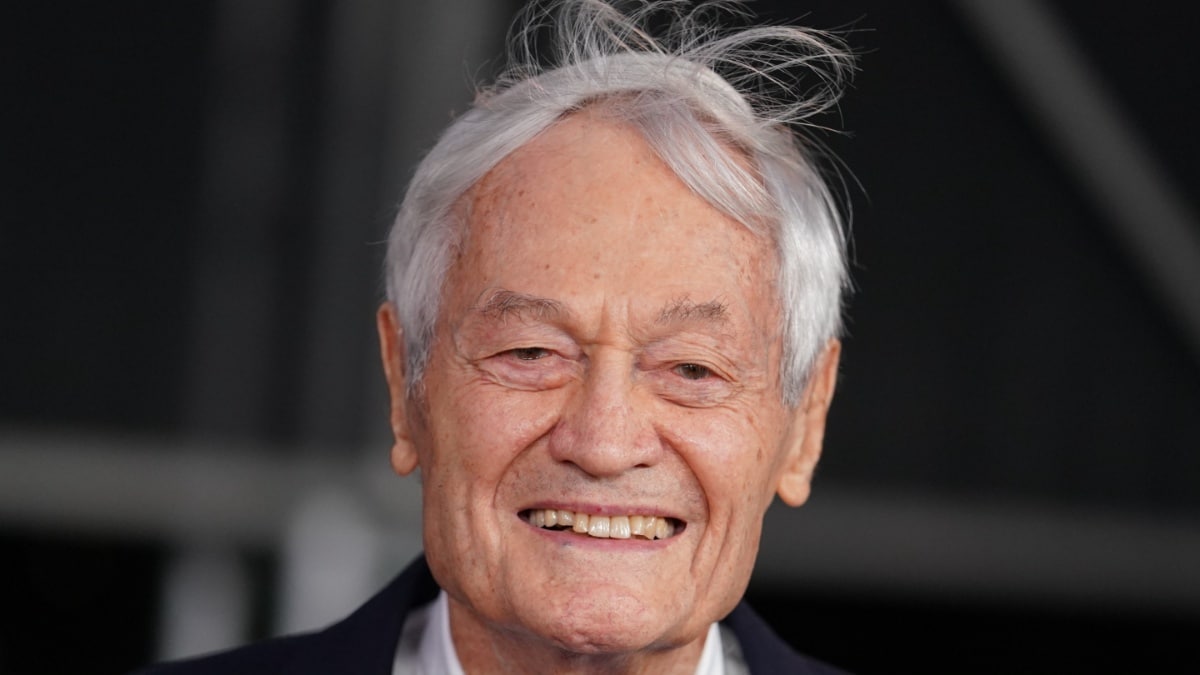
Renowned independent movie producer, distributor, and director Roger Corman passed away on May 9 at the age of 98, leaving behind a legacy that reshaped Hollywood.
On May 9, at his residence in Santa Monica, California, surrounded by loved ones, Roger Corman passed away, as confirmed by his family to Variety.
In a poignant statement, his family reflected on Corman’s legacy, describing his films as revolutionary and iconoclastic, capturing the essence of their era.
They shared Corman’s words, expressing his desire to be remembered simply as a filmmaker.
“His films were revolutionary and iconoclastic, and captured the spirit of an age. When asked how he would like to be remembered, he said, ‘I was a filmmaker, just that.’”
Corman has been hailed as the King of B-movies and a trailblazer for independent filmmaking.
Roger Corman mentored numerous legendary filmmakers
Born in Detroit, Michigan on April 5, 1926, Corman’s prolific career spanned over six decades, with a staggering output of more than 450 titles as a producer and over 50 as a director.
Corman’s influence extended far beyond his extensive filmography.
He was instrumental in launching the careers of numerous iconic filmmakers and actors, including James Cameron, Martin Scorsese, Francis Ford Coppola, Jack Nicholson, and William Shatner.
His keen eye for talent and willingness to take risks on unconventional projects made him a legend in the industry.
Some of Corman’s most notable works include a series of Edgar Allan Poe adaptations starring Vincent Price, such as House of Usher, The Pit and the Pendulum, and The Masque of the Red Death. His films were known for their revolutionary and iconoclastic spirit, capturing the essence of their time.
Roger Corman helped launch the careers of many Hollywood superstars
In his roles as both producer and director, Corman opened doors for numerous aspiring actors, catapulting the careers of icons such as Jack Nicholson, Charles Bronson, Peter Fonda, Bruce Dern, Diane Ladd, Sally Kirkland, Talia Shire, Robert De Niro, and Sylvester Stallone.
Reflecting on Corman’s impact, Nicholson expressed profound gratitude, acknowledging Corman’s pivotal role in his early career: “I was a nobody, and I am eternally grateful Roger Corman stuck with me, because I didn’t have anything else going for me.”
Nicholson’s feature film debut came in Corman’s 1958 crime thriller The Cry Baby Killer, where he showcased his talent under Corman’s executive production. Subsequently, Nicholson became a familiar face in Corman’s productions, solidifying his reputation as a versatile actor.
In addition to his onscreen achievements, Corman was celebrated for his behind-the-scenes ingenuity. Stories of his creative low-budget producing, including filming The Little Shop of Horrors in about three days, have become legendary in Hollywood lore.
Corman’s impact on the film industry reached even into contemporary culture, as he famously allowed the title The Fast and the Furious, from his unrelated 1954 film, to be used for the blockbuster action franchise in exchange for access to Universal stock footage.
Despite his many successes, some of Corman’s projects, such as the unreleased 1994 live-action adaptation of The Fantastic Four, remain unseen by the public. Yet, even these ventures contributed to his enduring legacy.